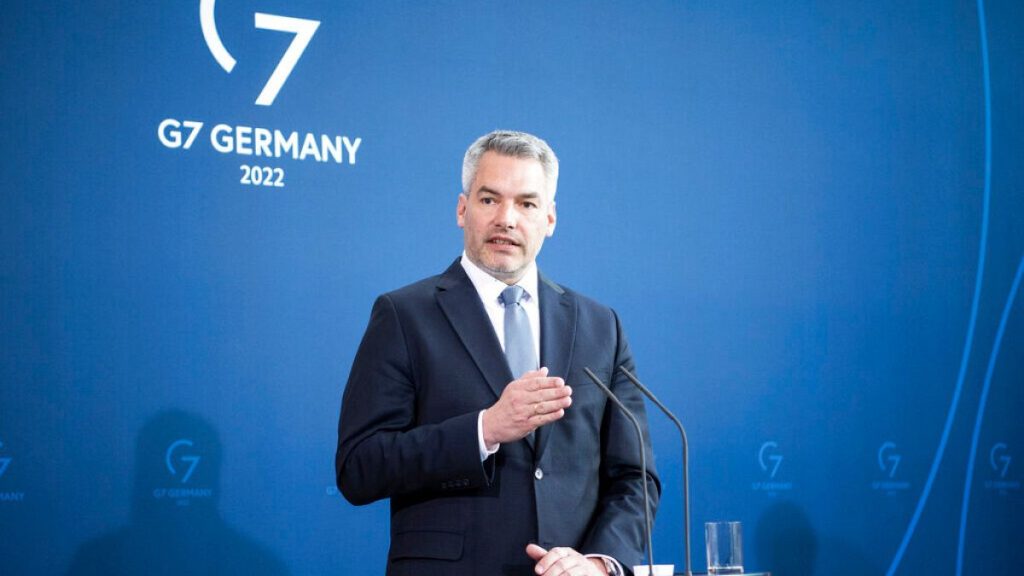The collapse of coalition talks in Austria marks a significant turning point in the country’s political landscape, leaving the nation in a state of uncertainty and raising questions about the future direction of governance. The failure to form a three-party coalition government stems from the inability of the involved parties – the Austrian People’s Party (ÖVP) led by Chancellor Karl Nehammer, the center-left Social Democrats (SPÖ), and the liberal Neos party – to reconcile their differing political agendas and visions for the country. The withdrawal of the Neos party, the smallest of the three potential partners, effectively scuttled the negotiations, citing irreconcilable differences on fundamental reforms and the inability to make meaningful progress. This development underscores the deep-seated divisions within Austrian politics and the challenges in forging a cohesive governing coalition in the wake of the September elections, which saw a surge in support for the far-right Freedom Party (FPÖ).
The September elections delivered a fragmented political landscape, with the FPÖ securing a significant victory but facing widespread rejection from other parties unwilling to collaborate with its controversial leader, Herbert Kickl. This rejection stemmed from concerns over Kickl’s far-right ideology, inflammatory rhetoric, and previous controversies, creating a political impasse that necessitated the exploration of alternative coalition arrangements. The potential three-party coalition involving the ÖVP, SPÖ, and Neos represented an attempt to circumvent the FPÖ’s influence and establish a government based on a more centrist and moderate platform. However, the inherent ideological differences between the three parties and the complexities of navigating a three-way partnership proved insurmountable, ultimately leading to the breakdown of negotiations.
The Neos party’s decision to withdraw from the talks was driven by its dissatisfaction with the pace of progress and the lack of consensus on key policy issues. Neos leader Beate Meinl-Reisinger expressed concerns over the inability to achieve meaningful reforms and the absence of a shared vision for the future direction of the country. This decision reflects the Neos party’s commitment to its liberal principles and its unwillingness to compromise on core values for the sake of political expediency. The withdrawal highlights the challenges of coalition building in a polarized political environment where parties prioritize their distinct ideologies and agendas, even at the cost of government stability.
The collapse of the coalition talks has significant implications for the future of Austrian politics. With the Neos party out of the picture, the remaining options for forming a government appear limited. The ÖVP and SPÖ possess a slim majority in parliament, theoretically allowing them to form a two-party coalition government. However, such a partnership would be fraught with challenges, given the historical rivalry between the two parties and their differing ideological stances on key policy issues. Moreover, a two-party coalition with such a narrow majority would be inherently vulnerable to political instability and potentially face difficulties in passing legislation and effectively governing.
Another possibility, though less likely, is the formation of a minority government. Such a government would lack a clear parliamentary majority and would be dependent on securing support from other parties on a case-by-case basis. This scenario would likely lead to further political instability and uncertainty, as the government would be constantly navigating shifting alliances and facing potential challenges to its authority. The prospect of a minority government raises concerns about the ability to effectively address pressing national issues and implement long-term policy agendas.
The failure to form a stable government following the September elections underscores the deep divisions within Austrian society and the challenges in forging a cohesive political consensus. The rise of the FPÖ, while significant, has also created a political deadlock, with other parties reluctant to engage in coalition talks due to concerns over the party’s far-right ideology. The current political impasse highlights the need for dialogue and compromise between the different parties to overcome the current stalemate and establish a stable and effective government. The future of Austrian politics remains uncertain, with the potential for protracted negotiations, further elections, or the formation of a fragile and unstable government. The outcome will have significant implications for the country’s political trajectory and its ability to address the challenges facing its citizens.

